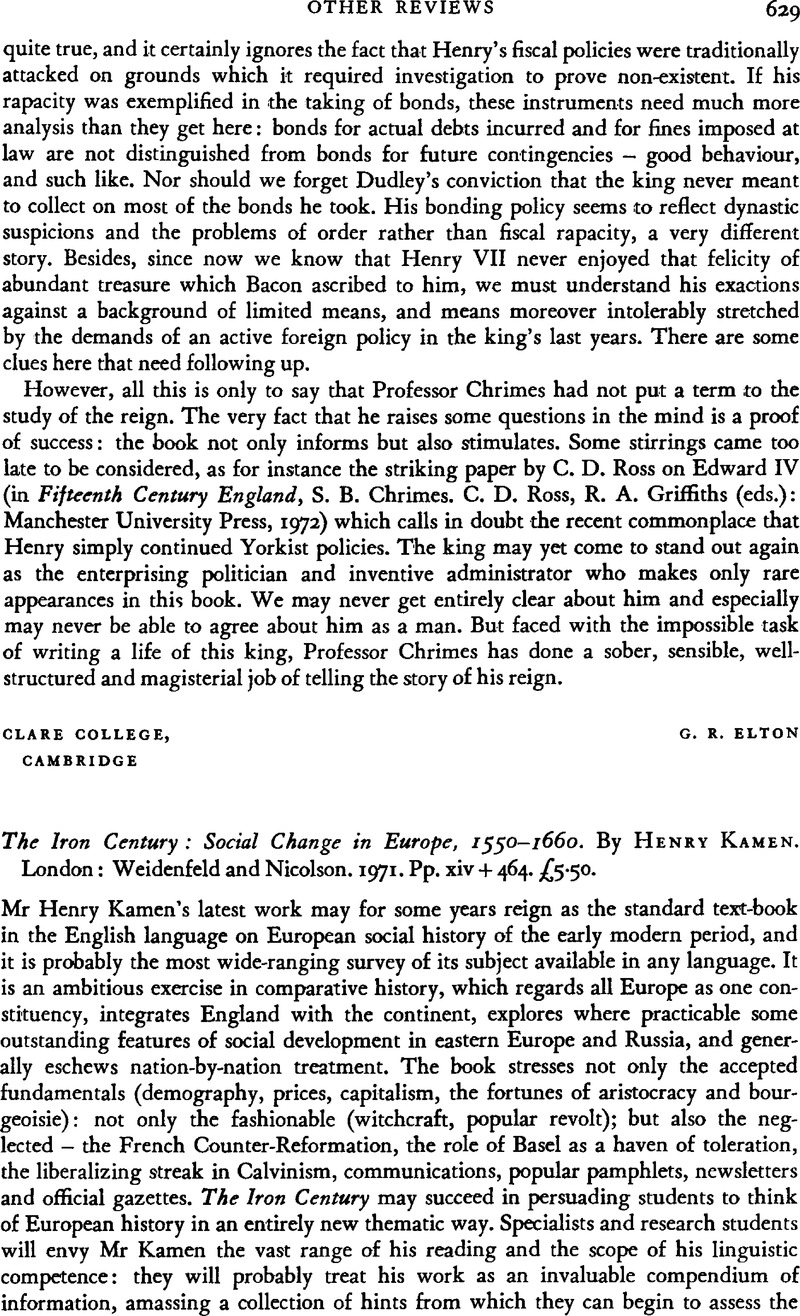No CrossRef data available.
Article contents
The Iron Century: Social Change in Europe, 1550–1660 By Henry Kamen. London: Weidenfeld and Nicolson. 1971. Pp. xiv+464. £5·50.
Published online by Cambridge University Press: 11 February 2009
Abstract

- Type
- Other Reviews
- Information
- Copyright
- Copyright © Cambridge University Press 1973
References
1 See Sutherland, N. M., The French Secretaries of State in the Age of Catherine de Medici (London, 1962), pp. 19–25Google Scholar; Villari, R., La rivolta antispagnola a Napoli: le origini (1583–1647) (Bari, 1967), pp. 138ff., 187.Google Scholar
2 Porchnev, B., Les soulévements populaires en France de 1623 à 1648 (Paris, 1963), pp. 576–7.Google Scholar
3 Kossmann, E. H., La Fronde (Leiden, 1954), pp. 62ft., 80ff., 117–19, etc.Google Scholar
4 Cf. for example the remarks of Président Jean Saveron on 17 Nov. 1614: ‘Aussi n'a-t-il pas [le droit annuel] donné sujet à la noblesse de se priver et retrancher des honneurs de judicature, mais l'opinion en laquelle elle a esté depuis de longues années que la science et l'itude affaiblissaient le courage et rendaient la générosité lâche et poltronne” - quoted in R. Mousnier, ‘L'evolution des institutions monarchiques en France et ses relations avec l'état social’, Dix-septième siècle, nos. 58–9 (1963), at p. 60.Google Scholar See also Hexter, J. H., ‘The education of the aristocracy in the Renaissance’, in his Reappraisals in History (London, 1961), p. 58, n. 1Google Scholar, and Bitton, D., The French Nobility in Crisis, 1560–1640 (Stanford, 1969), pp. 47ff.Google Scholar
5 E.g. Chrisman, M. U., Strasbourg and the Reform: a Study in the Process of Change (New Haven–London, 1967), pp. 42–4Google Scholar; Henderson, R. W., ‘Sixteenth century community benevolence: an attempt to resacralize the secular’, Church History, xxxviii (1969), 421–8.CrossRefGoogle Scholar


